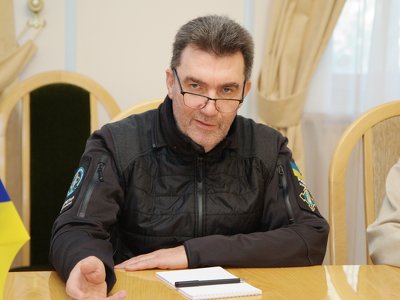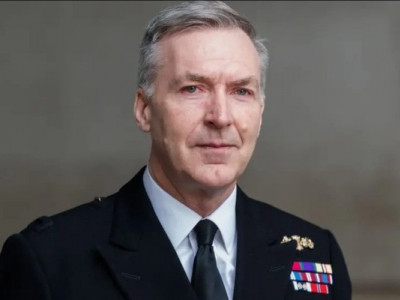Western U-turn — everyone wants to be Central Asia’s friend

Everyone seems to want to be friends with Central Asia now.
To put it simply: it is about geopolitics, energy supplies and trade routes.
It could be Central Asia’s jackpot moment which could open serious economic and political opportunities for the region. The question is do the region’s political elites see this chance and are they ready to take it?
Central Asia is an important point in the current reshaping of the global energy supply system as Europe searches for new sources to replace Russia. Moreover, the region is a future major supplier of critical materials needed for green energy technologies — competition for such resources is picking up.
With wars raging in Europe and the Middle East, Central Asia is emerging as a key middle corridor for trade between Asia and Europe.
The weakening of Russia following its invasion of Ukraine, and the ongoing US-China standoff are making Central Asia one of the focal points of the current global geopolitical realignment.
China saw Central Asia’s importance for its own global ambitions as soon as the five regional nations became independent in 1991. It has chosen a path of slow but committed economic expansion, investing mainly in energy and infrastructure – most importantly through its Belt and Road initiative.
It is likely to stick to that, remaining careful not to show any intent of political subjugation.
Russia had all the levers to maintain control over Central Asia after the Soviet collapse. But its policy towards the region has been a failure – it has basically done everything possible to push them away.
In the chaos of the 1990s it had no Central Asia policy at all. Later, it remained trapped in its patronising view of Central Asia as weak satellites that will forever remain dependent on the Kremlin.
No doubt, Putin always wanted to keep Central Asia under Moscow’s wing, but his crude methods only kept alienating the region, even if some of them (Kazakhstan, Kyrgyzstan, Tajikistan) joined, given no choice, the Moscow-led military and economic groupings.
As Putin got further entrenched in his imperialistic and chauvinistic fantasies, and particularly after he started his war on Ukraine, the Central Asian countries began to see Russia as a threat to independence. Russian politicians have made claims that Kazakhstan’s northern territories are ‘historically’ Russia’s.
Russia has never had a good economic cooperation plan for Central Asia, except for its national companies and oligarchs acquiring some energy and other assets in Kazakhstan and elsewhere in the region.
Putin, who rarely makes foreign trips now, visited Astana earlier in November. He looked aged and subdued, and without the usual air of authority and swagger around him.
His visit, just days after Emmanuel Macron’s tour of Kazakhstan and Uzbekistan, came across as a reflexive and face-saving gesture.
This brings us to the West’s recent show of keen interest in boosting relations with Central Asia.
Macron came with an eye on Kazakh and Uzbek uranium supplies for France’s nuclear energy industry, and was all smiles and friendly rhetoric in his meetings with his Kazakh and Uzbek counterparts.
It looks like the United Kingdom too is planning to up its game in Central Asia.
In a report published on 10 November, the UK parliament’s Foreign Affairs Committee urged the government to pursue “a considerably bolder and more ambitious” policy of engagement with Central Asia, describing it as a geopolitical necessity.
It criticised UK policy makers for “overlooking” and “underappreciating” the region and seeing it in such stereotypical terms as “China and Russia’s backyard” or “post-Soviet states”.
US think tanks, whose ties with US policy makers are well known, have also recently been advocating a review of US attitudes towards the Central Asian nations.
In October the Washington-based Carnegie Endowment for International Peace launched a new initiative “Reimagining Continental Asia”.
Its main message is that Central Asia should be viewed as an independent international player as opposed to the old perception about it as a passive object of competition between larger powers.
Carnegie Vice President Evan Feigenbaum, who is a former US undersecretary of state for Central Asia, said that “it is time for some new thinking”.
Also in October, The Davis Center for Russian and Eurasian Studies (Harvard University) organised an online discussion on Central Asia’s importance as a supplier of critical materials needed for the generation of clean energy.
The speakers said that as the global green transition race escalates, Central Asia might turn into a new hotspot of geopolitical rivalry.
In 2022, the EU signed an agreement with Kazakhstan on raw materials, batteries, and renewable hydrogen. In September, after US President Joe Biden’s meeting with the five Central Asian leaders in New York, the White House announced the launch of a C5+1 dialogue on critical minerals.
Kazakhstan has long been pursuing a multi-vector foreign policy, trying to build bridges and find new partners. It seems the world is finally turning its face towards Kazakhstan.
It could be a great opportunity, provided the Kazakh government puts above everything else the interests of the Kazakh people.
- Последние
- Популярные
Новости по дням
28 апреля 2024







